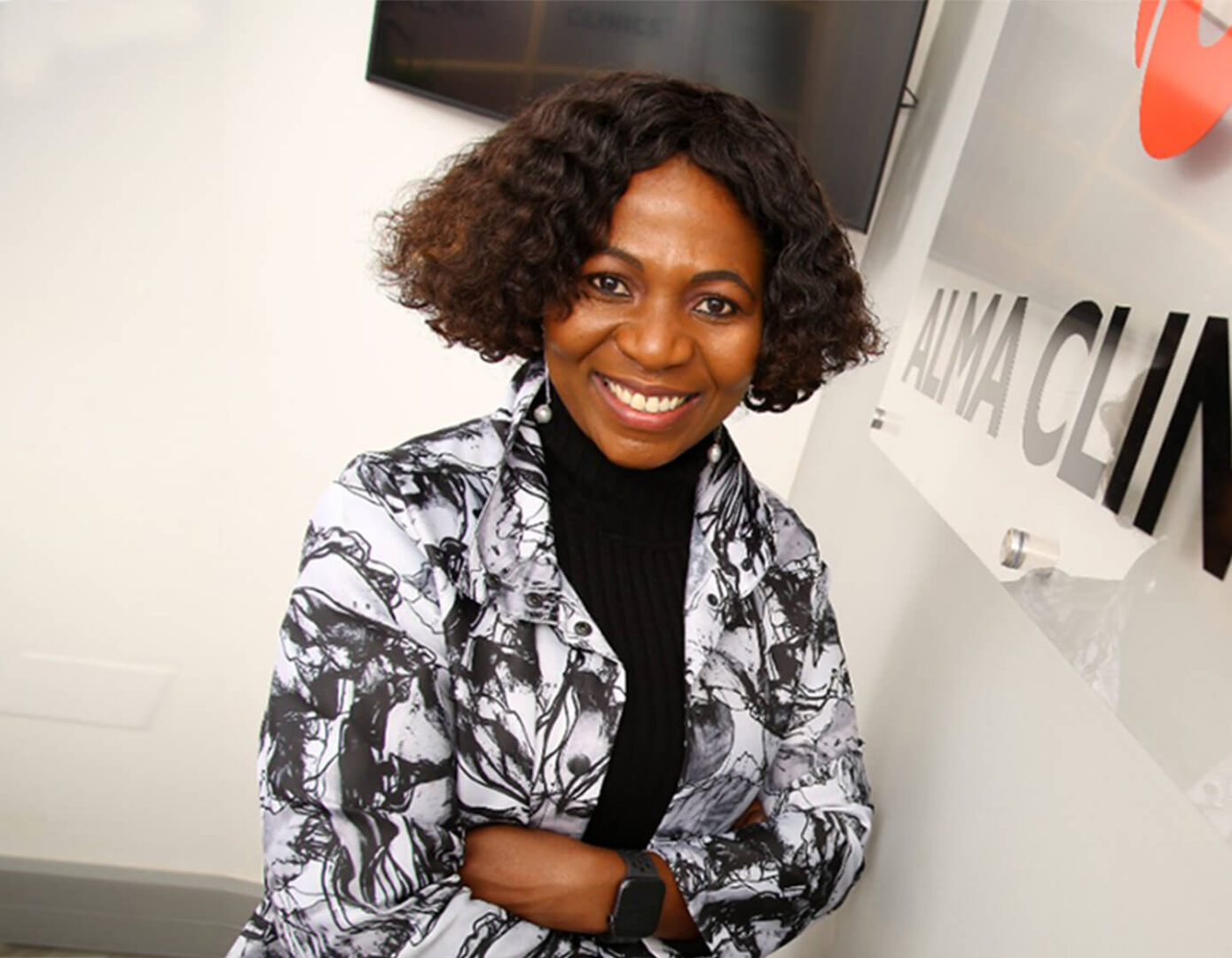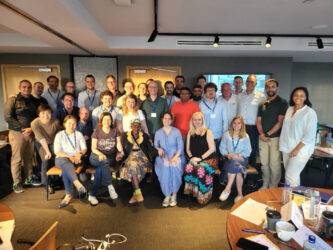
Growing up in Soweto, Sibongile Manganyi-Rath experienced first-hand the damaging impact of an underfunded healthcare system when, aged 13, she was poorly treated and almost misdiagnosed at a state-run clinic.
She is now an award-winning businesswoman, having founded the Indigo Kulani Group (IKG), an infrastructure and real estate development company, aged just 26. But after completing her EMBA at IMD in 2018 and recalling her own experience as a teenager, Manganyi-Rath decided she could have the biggest impact by building a more inclusive and accessible healthcare system.
“If people are sick, you can’t even do your work. Healthcare is so integral because it affects everything about a person. For me, helping people have better and easier access to healthcare is such an important thing,” she says.
Nominated by IMD for her work championing diversity and inclusion, Manganyi-Rath is one of 27 business school graduates honored in the Association to Advance Collegiate Schools of Business’s (AACSB) 2022 Class of Influential Leaders.
Together with EMBA classmate Marcello di Maulo, she co-founded Alma Clinic, a nurse-led medical clinic based on an innovative digital health platform called ABEOCARE in 2020. Alma Clinic’s mission is to empower both patients and medical practitioners by improving awareness and knowledge around non-communicable diseases, such as diabetes and hypertension, making it easier to diagnosis and manage health conditions.
When patients visit the clinics, their health vitals are plugged into the ABEOCARE system, which screens for non-communicable disease risk factors and helps nurses make decisions about treatment plans. Once a diagnosis is made, the data is easily available in the ABEOCARE app, which stores prescriptions and appointments and can be accessed by patients. Blockchain technology is used to ensure privacy and accountability, and helps prevent fraud by creating a record of appointments for insurance companies.
The app also allows for real-time monitoring, for example of blood glucose levels. Designed to be easy to use, it employs a traffic-light system; it will turn red if the levels become critical and alert the clinic.
One of Manganyi-Rath’s aims was to raise broader awareness around non-communicable diseases, which account for more than half of annual deaths in South Africa. She has come up with a competition that encourages young people to help older relatives by offering prizes when they complete certain milestones.
Another dream for Manganyi-Rath was to give young women greater power over their reproductive health, by breaking down social stigma and reducing the cost of accessing contraception.
Entrepreneurship from the inside out
Reluctant to view herself as a disruptor of healthcare, Manganyi-Rath instead believes the best solutions can be found by trying to work within the existing system in South Africa. Her starting point in founding Alma Clinic and ABEOCARE was understanding how you can leverage technology to improve services.
“People think they often have to do something very complicated as an entrepreneur. I never want to disrupt anything, you get pushback,” she says. “I have found success in applying things in a very pragmatic and simple way. It’s about understanding how people function and how you can innovate to create a profitable enterprise.”
So far four Alma Clinics have opened, serving around 10,000 patients. Manganyi-Rath plans to expand to 45 clinics with over a million people using the ABEOCARE app over the next five years. In doing so, she aims to help counter the traditional bias in medicine, by building up a powerful database for population groups that have traditionally been underrepresented in datasets.
“There is not enough good quality data in Africa. A lot of clinical trials are done on Western men and those drugs are pushed into Africa,” she says, adding that technology can help remove some of those biases and allow for more tailored treatments by creating a fuller picture of the patient.
Her long-term ambition is to expand the business into other countries, making Alma Clinics a byword for accessible and affordable healthcare, a bit like a “McDonald’s of healthcare,” she laughs.
Joking aside, Manganyi-Rath’s advice for budding social entrepreneurs in Africa is not to compromise on quality. “Just because something is affordable, it doesn’t mean it has to be lower quality,” she says. “It’s important to see entrepreneurs in Africa coming up with market-based solutions that understand how people are using the system at the moment and respond to those needs.”



